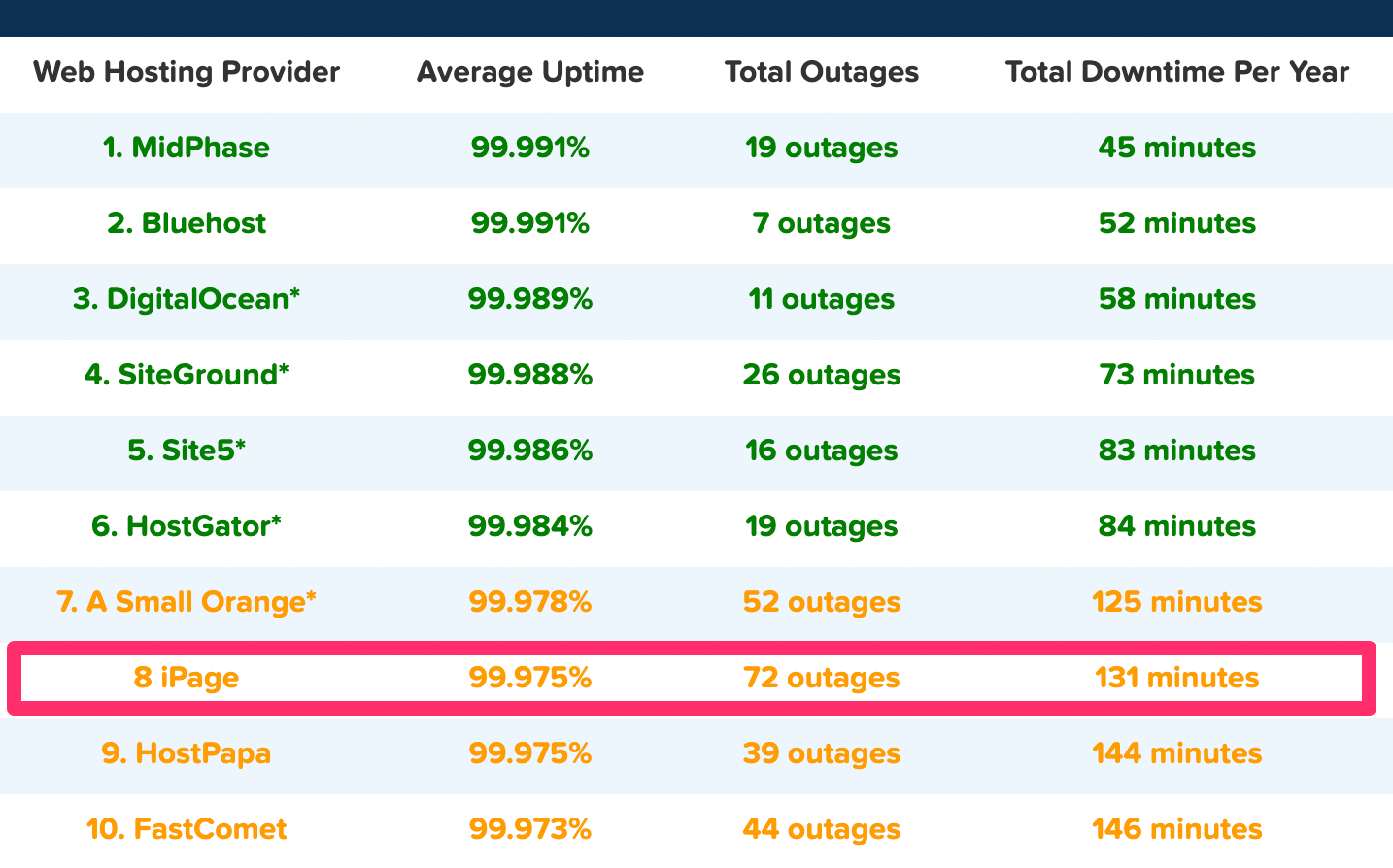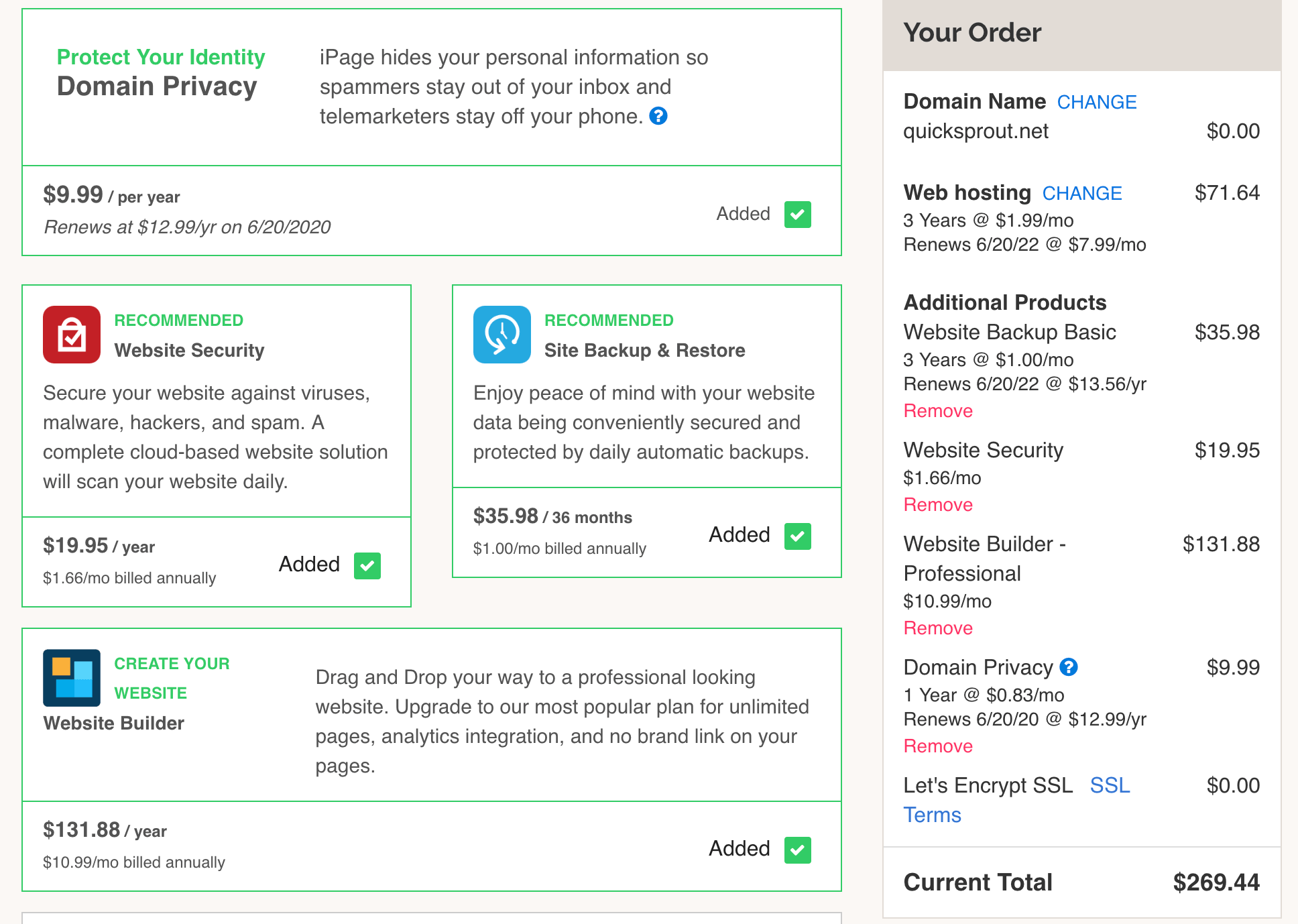Questions About Renters Insurance, External batteries, Audiobooks, Bike Repair, and More!
SUBTITLE – Reader Mailbag
What’s inside? Here are the questions answered in today’s reader mailbag, boiled down to summaries of five or fewer words. Click on the number to jump straight down to the question.
1. How necessary is renters insurance?
2. Mental health disorder concerns
3. Nursing home costs
4. Uncomfortable political talk from coworker
5. External battery recommendation
6. Details of 401(k) matching
7. Free audiobooks for vacation?
8. Personal bankruptcy question
9. Bike maintenance and repair kit
10. Exercise motivation outside of gym
11. Sunscreen recommendations
12. Frugal cookbook recommendations
There are few things in this world that feel better than climbing into a comfortable bed after a long, physically exhausting day.
It takes about all you have left in the tank just to get ready for bed, and then you climb in and slip under the covers, with your body resting on a soft surface, and your whole body just feels relaxed and good. Sleep comes over you with shocking rapidity and soon you’re drifting off into a well-earned slumber.
There are few things like it in the world.
On with the questions.
Q1: How necessary is renters insurance?
My daughter is renting an apartment with some friends and she says that the landlord requires renters insurance. Is this a real thing? I rented an apartment for years at her age and never had renters insurance.
– Diana
Yes, renters insurance is a real thing. It typically covers the loss of the renters property in the event of a wide range of unfortunate events and any liabilities incurred by a disaster in which the renter is at fault (like causing a fire).
In the past, many renters went without insurance and thus, if the building burnt down, the property owner had to hope that their own insurance would cover it.
Today, many landlords require the tenants to have a renters insurance policy, often as a condition of their own insurance policy on the building.
It’s not a big deal. Renters insurance is usually really inexpensive and covers many common rental issues. If it’s a requirement, she should definitely get the insurance, and she should consider it anyway for personal protection.
Q2: Mental health disorder concerns
I love your blog, especially the questions and answers. I read one just now about “privilege” and it made me think of my daughter, who has a serious mental health disorder. She is in her mid twenties and has had so many challenges in her life that those who are healthy have no understanding of. I feel like she started way behind most people, even as a child. It’s been a ton of work for us as her parents, but mostly for her. We hope that she will be completely independent at some point, but we are not there yet. Do you have any suggestions for planning for her future financially? My husband and I are starting to think about retirement and have enough saved for ourselves, but we aren’t sure how to provide for her since her future is uncertain. She will finish an associate’s degree this year with a good GPA, but has no idea where to go from there.
– Connie
It is very difficult for me to give you specific advice without knowing the details of your child’s mental health condition and the long term prognosis for it.
My first suggestion would be to talk to the doctors who are primarily in charge of helping her with her condition and see what they suggest. There are a lot of resources out there for parents in your situation to help with that kind of planning. There are also likely support groups where you can find others who are dealing with the same issues you are in the same community and can share both resources, friendship, and emotional support, and those doctors (or one of their staff members) can point you in their direction.
I think a key part of this is some very honest conversation between you and your partner about what you can do to best provide not only for your daughter, but for the two of you as well. What is the best future you can reasonably provide for the three of you? The thing to remember is that you should only consider making your own situation worse if it actually helps her in a significant way. If the things you would do to “help” don’t actually improve things for her and makes your own situation worse so that you can’t provide real help at a later time or significantly reduces your own quality of life, it is not a good choice, even if it feels like one. Make absolutely sure that the things you do are truly improving her situation going forward and not just things to make everyone feel better in the moment, because if you’re throwing money and effort to very elusive “feel good” moments, you’re hindering all of your futures.
Whatever you choose to do, lead with love. Make it clear to your daughter every day, with every decision, that you love her, and that the things you’re doing are at least in part to prepare her for a world that will someday not have you in it.
Q3: Nursing home costs
Do you have any thoughts on this article?
https://www.bloomberg.com/news/articles/2019-06-25/u-s-nursing-home-costs…
How much should we be preparing for nursing home costs?
– Gary
To be frankly honest, I have no idea, and neither does anyone who attempts to forecast those costs out beyond the next ten years or so.
If I had to give an honest guess about the long term future, my guess is that by the time I would need such care, it will be done by robotics. I fully expect the nursing care I need in my final years will be done almost entirely by robots with occasional remote doctor visits while I’m still in my own home until the very end, when there may be some hospice care.
The thing is, I don’t know this. I don’t know what care options are going to be available when I’m 80. I don’t know if I’ll be around when I’m 80. Will the nursing home system be like it is now? Will there be a move away from nursing homes toward automated home health care? What options will be on the table for people in forty years? We simply don’t know.
I think the best thing most of us can do is fund our retirement accounts as much as we possibly can. This is particularly true the younger you are. Dump in that money now so it has 50 years to grow before you have to consider these issues.
If you’re in a shorter term situation, where you think you might be in a nursing home situation within a decade or so, I’d start looking at insurance right away. Beyond that… it’s just too murky, so I’d just save money in general savings for whatever may come.
Q4: Uncomfortable political talk from coworker
I really love my job and the income I make and so I don’t want to rock the boat but there is one thing that really bothers me and I don’t know how to handle it. One person who is a manager but not my manager regularly engages in political topics. He has opinions I would consider extreme but he voices them in a way that implies that we all just agree with his views. This would bother me a lot if I were under him, but I mostly just hear it at the water cooler and so on. I don’t mind disagreeing with someone but I don’t want to hear about it at work and I don’t want to have people assuming that this is how I feel. I’d rather they either know what I actually think or better yet know nothing at all about my politics so it’s a non-issue. I don’t want to argue politics at work because I think that’s a worse solution but this is very frustrating and off-putting. It’s keeping me and a few others at our desks when we might want to be collaborating and networking. What can I do without really rocking the boat?
– Ellen
Your best bet for you personally is to do nothing at all. You may want to look for a few people who are sticking to their desk a lot and check in with them to see if they also find the political talk off-putting and spend time hanging out with them and avoiding the political talk. You might find yourself with a nice small lunch group out of that.
If you want to actually do something about it, talk to the manager one on one about it. Simply tell him that there are people who take the issues he is talking about deeply personally and are becoming disengaged with the office culture because of it, regardless of whether they agree with him or not. Give an example of how one of his recent talking points could actually be taken as commentary on something they’re dealing with in their own personal life outside of work. If he blows it off, then there’s a genuine managerial problem going on here and this individual probably shouldn’t be managing people in a large organization, because this is feedback that a good manager will listen to and use to adjust their own behavior to help everyone succeed. That’s their job.
If I were in your shoes, I’d probably go for the former strategy and just seek out people who want the office to be apolitical and associate with them.
Q5: External battery recommendation
Do you have a recommendation for a good bang for the buck external battery for charging cell phones?
– Jane
For things like these, I always turn to Anker. They have really made a name for themselves (for me) for making low cost but high quality charging devices and other similar devices.
My absolute favorite external battery of theirs is their 20100 mAh PowerCore. It’s about the size of two bars of soap bolted together on the ends, but it does an amazing job of storing a ton of juice and charging devices on the go. This type of battery is best carried in your bag when you’re out and about.
If you’re looking for something smaller that might fit in a pocket well, I’d recommend this PowerCore 5000 mWa model. It’s about the size of … a good-sized candy bar, maybe, and fits nicely in the pocket. It holds about one full phone charge for a newer cell phone and maybe two charges for an older phone and can charge very nicely when it’s in your pocket. It’s probably what you want if you’re out and about and just want something light in your pocket that will ensure your phone doesn’t run out of gas.
Those two options should cover you. I have had nothing but great experiences with Anker and their prices are always at the very least competitive among the bargain-priced chargers.
Q6: Details of 401(k) matching
I don’t understand how my employer 401(k) match works at my new job. Can you explain it in non-Greek?
– Bart
In Bart’s original message, he copy and pasted a paragraph from his workplace manual which I chose to excise because it immediately indicated where he worked. However, I can easily explain the arrangement without the original text.
At Bart’s workplace, they match 100% of the first 4% of contributions. So, if Bart’s total contributions are at 4% or below, the workplace will match that contribution in full.
All contributions above 4% and up to 8% of Bart’s pay are matched at a 2/3 rate. So, if Bart’s total contributions are at 6%, they’ll match the first 4% at 100%, then the remaining 2% at a 2/3 rate, for a total employer match of 5 1/3% if Bart is contributing 6%.
Then, all contributions above 8% and up to 12% of Bart’s pay are matched at a 1/3 rate. So, if Bart’s total contributions were 10%, his employer would match the first 4% entirely, then match 2/3 of the next 4%, then 1/3 of the final 2%. That adds up to 4% plus 2 2/3% plus 2/3%, or 7 1/3%.
It’s easiest with a system like this to just add the contributions for each segment together.
What if Bart contributes the maximum amount that gets a match, 12%? This is what I would recommend. His workplace would match the first 4% in full. Then, they’d match 2/3 of the next 4%, a total of 2 2/3%. Then, they’d match 1/3 of the final 4%, a total of 1 1/3%. In total, this adds up to 4% plus 2 2/3% plus 1 1/3%, or 8%. If Bart contributes 12%, his employer will match with an 8% contribution, so 20% of Bart’s pay will wind up in his 401(k). That’s a pretty nice deal, and I recommend he jumps at it.
Q7: Free audiobooks for vacation?
Do you know where I can get free audiobooks for my family to listen to on vacation? Used to use Audible but it’s too expensive.
– Emily
Besides the library, you mean? The library is the obvious place to go to get a free audiobook for your summer trip. On ours, we’re planning on listening to a couple of library audiobooks.
Another really good source is this LibriVox, which is a collection of audiobooks of public domain books. They’re all read by humans with varying degrees of quality, but most of them are at quite good. I think that many of the readers are people who just enjoy reading aloud.
Aside from those options, Audible has a number of free audiobooks that regularly rotate, and there’s a pretty solid free audiobooks app for the iPhone.
Amongst those options, I’m sure there’s something you can find worth listening to.
Q8: Personal bankruptcy question
I’m having really hard time paying my bills. I showed my brother all of the bills and he said I should go bankrupt. I don’t know how to go bankrupt or what’s bad about it or what is good about it?
– Sloane
Bankruptcy is the legal process you go through when you are able to demonstrate to a court that you no longer have the means with which to pay your debts. Depending on the type of bankruptcy, some of your debts may be discharged, which effectively means they vanish and you no longer owe them.
There are two main types of personal bankruptcy. One is called Chapter 7, and it’s generally for people with a low income as you have to demonstrate that your income is below the average in your state to file for Chapter 7 bankruptcy. You also usually have to take mandated credit counseling classes. In this case, they take what liquid assets you have – your cash and things you can easily sell – and use it to pay off the people you owe money to as far as that goes, and then the rest of the debts go away.
The other option is Chapter 13 bankruptcy, and in that situation, the court basically comes up with a debt repayment plan for you that’s kind of a compromise between what you can possibly afford and what you owe. You’re then forced by the court to follow that payment plan. This allows you to keep most of your stuff, but you’ll be under a pretty strenuous debt repayment plan for several years.
In both cases, your credit is usually in very poor shape for seven to ten years, making it hard to get loans of any type. However, bankruptcy is often the only solution for people who are in a very bad debt situation.
You should contact a bankruptcy lawyer in your area for the specific details on the rules in your state.
Q9: Bike maintenance and repair kit
My son graduates from college in August and we are buying him the bike he’s wanted for years, clocking in at about $3,000. (He has no student loans thanks to his hard work and our savings if you’re wondering why we don’t just help with that.) We want to get him some good tools to maintain and repair the bike with as he has this beat-up kit he uses for his old bike. The place we’re buying the bike from has about fifty recommendations that just feel like overkill and all of the publications we’ve found seem to have unnecessarily long lists, too. Suggestions?
– Max
The exact things to get depends on the bike itself, but there are a few things that he’ll definitely use.
First, get him a decent set of Allen wrenches that range from about 2 mm up to 12 mm or so in size. Most bikes use screws that operate with Allen wrenches. You should also get him a small set of open-ended wrenches, also in metric size between 5 and 20 mm. Get him a good chain brush and chain lube and cleaner, a couple of extra tire tubes, and a tube patch kit. Also get him a floor pump and a gauge so he can keep his tires aired up. That stuff will handle almost all of the maintenance he’ll do himself.
Again, I’m not sure about specific recommendations about which of each item to get because I’m not sure what you want to spend, but if you focus on that handful of items, you’ll be in good shape for most maintenance and basic repairs. He may need a few other items if he decides he wants to replace the brakes or something like that, or he may just want to take it to the shop. A gift card to a bike shop near where he lives might be okay to help with this, too.
Q10: Exercise motivation outside of gym
Decided to end my gym membership because it’s adding up to more than $1000 a year and I can’t really afford it. Thought I could stay motivated exercising at home with some free weights I got from Craigslist and bodyweight exercises but I find it hard to do it. I think I just think of home as a place to rest/eat/sleep/relax and not to work out.
– Jeremy
You probably do have that mindset in your head that your home is a place for relaxation, eating, and sleep, so you may need to turn to other motivational tools to help you push through it.
One strategy I’ve seen that really works is to use a “reward checkoff.” Define a particular exercise routine that you want to do, then print off a grid of paper of whatever size works for you and put it on the fridge or tape it to the wall. Each time you do that workout at home, mark off a spot on that grid. When that grid is full, give yourself some predetermined reward, maybe some kind of exercise gear you’ve been wanting. The goal isn’t the reward, but to establish exercising at home as normal.
Another thing that works pretty well, at least for me, is to visualize yourself doing the thing you want yourself to be doing. In your case, frequently imagine yourself working out at home. Imagine yourself doing the pushups and lifting the weights and all of the other things you do as part of your workout. Imagine it often. You’ll find that it eventually feels more normal to actually do it.
Give these two strategies a try for the next month or two and see if they help.
Q11: Sunscreen recommendations
Read your earlier sunscreen recommendations. Do you think this is a product where name brand makes a difference or is store brand okay?
– Amy
My experience is that store brand sunscreen is perfectly fine and the thing that matters most is the SPF level on the bottle. My family and I have used only store brand sunscreen so far this summer and no one has gotten any kind of sunburn after applying (I got a minor burn on my knees one day because I didn’t put any on) even though several of us are fair-skinned.
If you’re unsure, look at the ingredients. You’ll find a lot of similarities between brands.
If you want more specific recommendations, try to avoid zinc oxide and titanium dioxide as they can penetrate the skin, choose unscented options, and choose lotion-based and water-resistant options. Those things actually make a difference. In the absence of specific features that can distinguish them, I’ve never found any significant difference between name brand and store brand sunscreens.
Q12: Frugal cookbook recommendations
Saw your recent mention of your love for cookbooks and wondered if you had any recommendations. Mostly looking for ones that have lots of easy cheap recipes.
– Danielle
There are four that I can personally recommend. There are many more out there, but I have personally used and enjoyed these.
100 Days of Real Food on a Budget by Lisa Leake focuses on using real, whole foods as the backbone of meals but doing it in a cost-effective way. The recipes here are pretty healthy and tasty and aren’t too hard to pull off. However, the other cookbooks do aim for even cheaper recipes by comparison; this is the one to choose if you’re prioritizing health as much as the low price of a recipe.
Good and Cheap: Eat Well on $4 a Day by Leanne Brown is probably the best for truly inexpensive meals that are easy to prepare, but compared to the previous cookbook, there’s not as much of a commitment to healthy eating with this one. This one prioritizes “cheap” over “healthy” while still being tasty.
Good Cheap Eats by Jessica Fisher goes in yet another direction, focusing on really delicious meals above all else. The recipes are still pretty inexpensive, but the focus of this book is more on delicious as a top priority.
My final choice, Budget Bytes by Beth Moncel, really nails the “quick” element of meal preparation. There’s a lot of multitasking with the recipes in this book but they almost always clock in at an overall low time to completion while still keeping costs low and producing really tasty, impressive meals.
I think they’re all good, and I’ve drawn on all of them over the years.
Got any questions? The best way to ask is to follow me on Facebook and ask questions directly there. I’ll attempt to answer them in a future mailbag (which, by way of full disclosure, may also get re-posted on other websites that pick up my blog). However, I do receive many, many questions per week, so I may not necessarily be able to answer yours.
The post Questions About Renters Insurance, External batteries, Audiobooks, Bike Repair, and More! appeared first on The Simple Dollar.

Source The Simple Dollar https://ift.tt/2Ju3VBW







